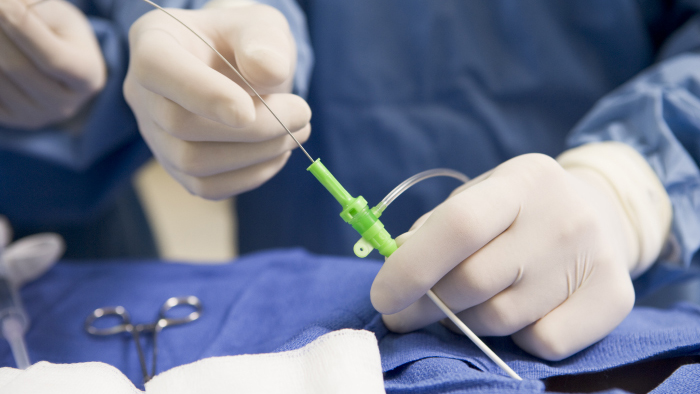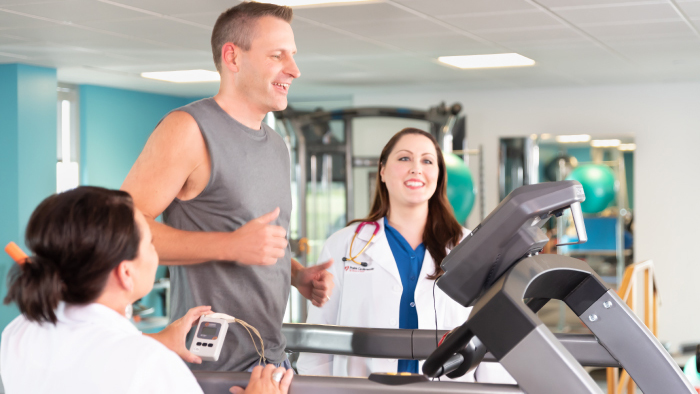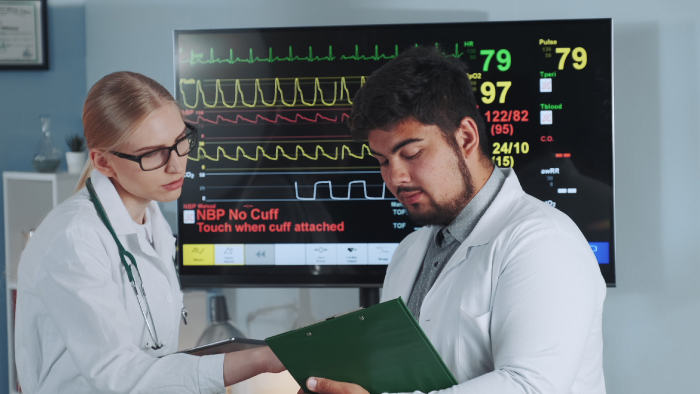Cardiac catheterization (commonly referred to as a cardiac cath) is a procedure during which x-ray motion picture films are taken of your heart and the arteries that supply it with much needed oxygen-rich blood. A thin, flexible tube known as a catheter is placed into the leg or arm artery. A cardiologist threads the catheter through the artery to your heart. A special dye is then injected through the catheter, allowing the cardiologist to see heart valves and arteries on the x-ray screen. This helps the cardiologist determine the presence and extent of vessel damage in those who have symptoms of cardiac disease.
St. Elizabeth's Cath Lab is equipped to successfully care for the most severely ill, high risk patients with the assistance of the Impella, a percutaneous left ventricle assistance device.



